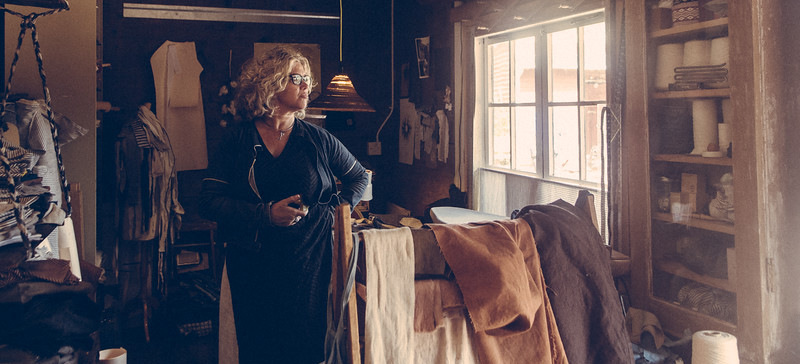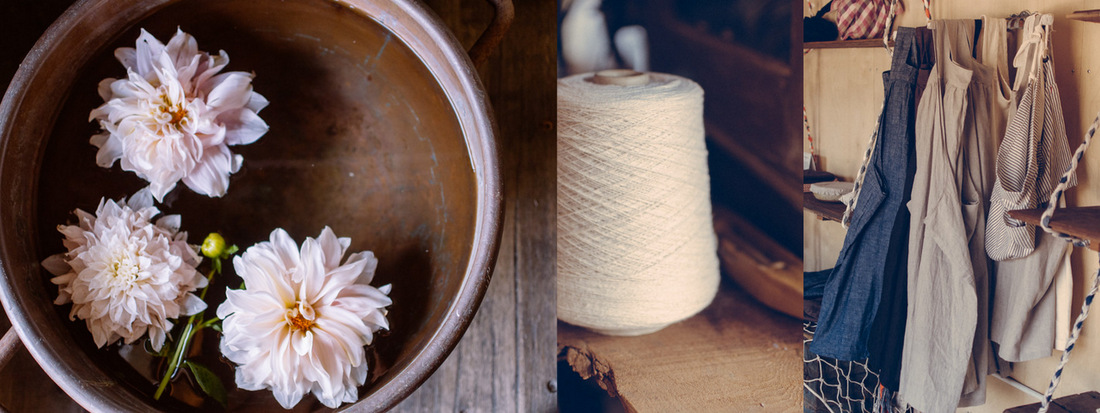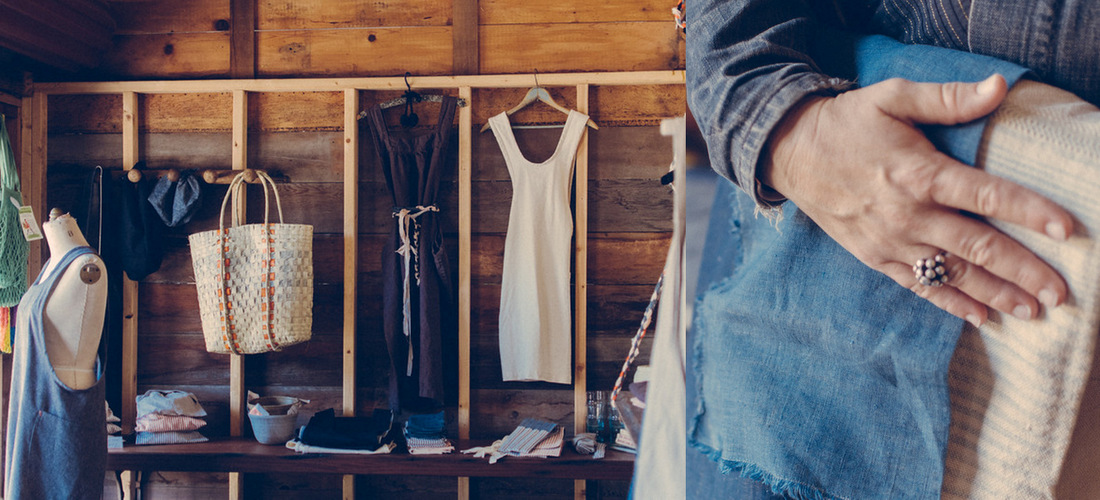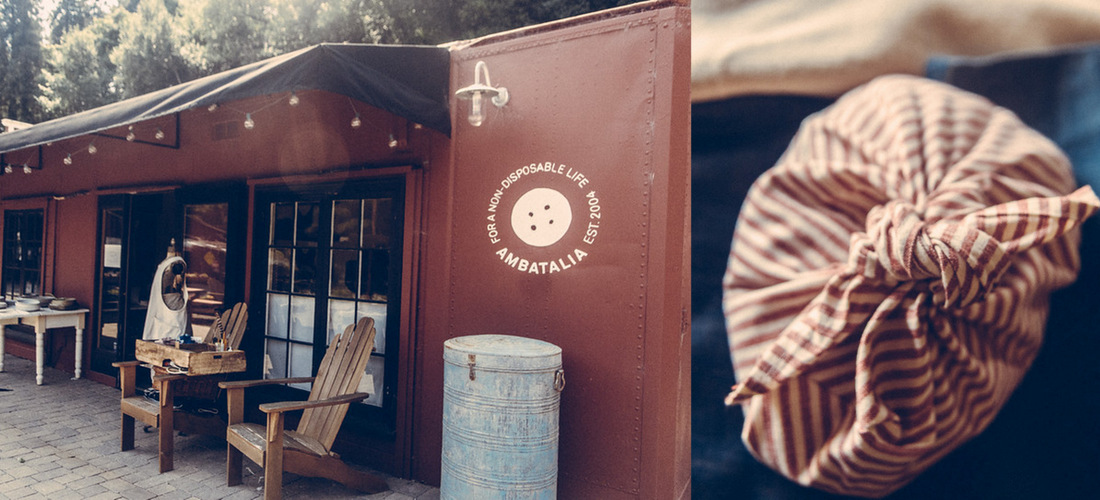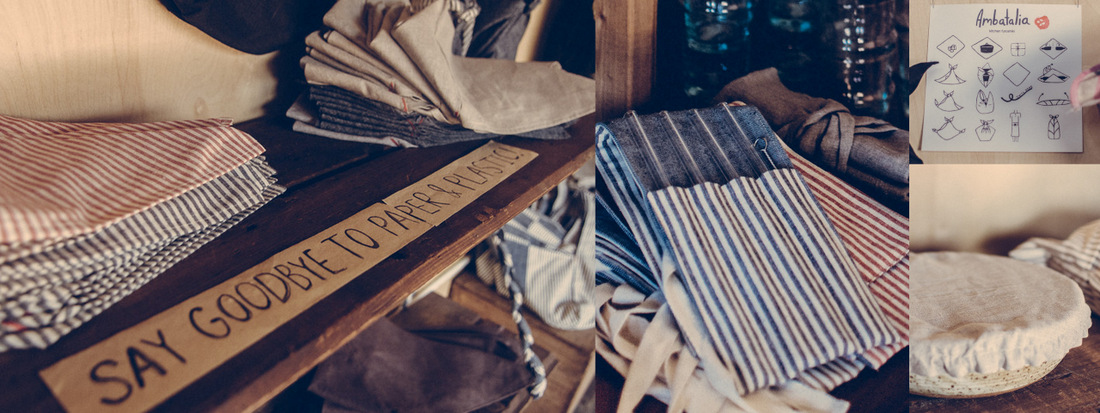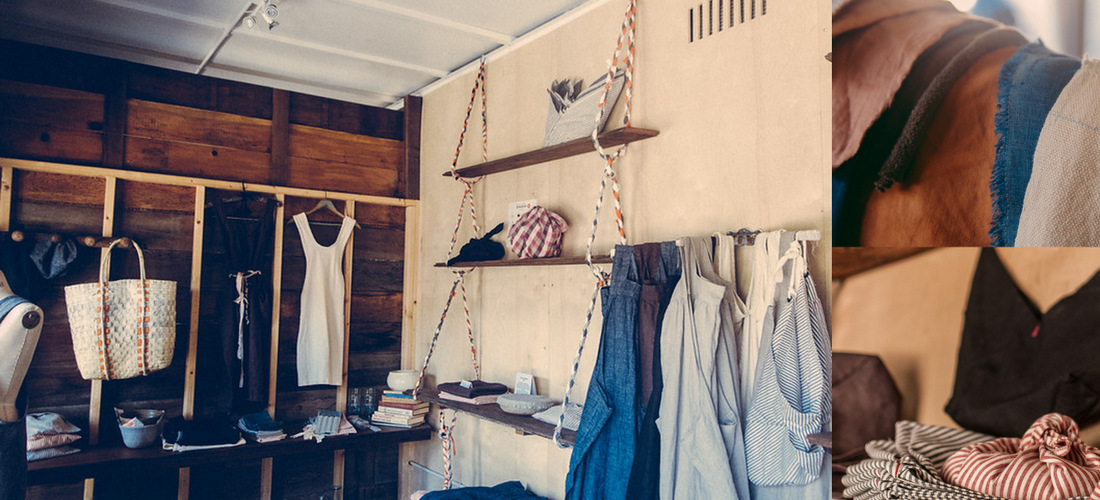Written and photographed by Koa Kalish
After a 20 year stint as a full-time hairdresser, Molly de Vries was certain there was something more for her. She gave herself one year to “collect clues” for her soul path and true calling. The clues led her into a typical fabric shop, which according to Molly “was full of rolls of plastic fleece, mothers with their babies on their hips screaming and nowhere to put the children.” She thought, “why can’t we have fabric that’s authentic?” Molly opened her own fabric store in 2004 out of her need to offer fabrics that were sustainable from both an environmental as well as a cultural standpoint. One of the first people she called was Sally Fox who, along with Mimi Luebbermann of Windrush Farms, were the only people Molly knew to be involved with local fiber at that time.
Molly’s mother was a seamstress and growing up she had plenty of time to sew and play with fabric. Molly sees herself as a designer rather than a seamstress, an “obsessive creative” rather than an artist. After four years of running Ambatalia as a sustainable fabric shop, in 2008 she refocused the shop into a design house for textile goods. For Molly, it isn’t as much about the beautiful fabrics, although “Of course,” she says, “I admire gorgeous techniques. I am more into classic cultural techniques: more into the plain cloth as a utility cloth. My creative process is about the object and making use for it.”
Walking into Ambatalia is walking into the home of a patchwork of fabrics of the utmost quality: vintage linens, handspun and woven cotton; various objects sewn into utilitarian tools to fit Ambatalia’s tag line, “for a non-disposable life.” Strewn casually about the shop are swatches of gorgeous glowing colors – fabrics locally dyed with loquat, toyon, and indigo, to name a few. They all float together in a harmonious space, creating a saturated mosaic of plant-based palettes. Molly designs this cloth works into Japanese obis, French frock dresses, aprons, napkins, utensil holders, and her signature Bento bags – cleverly designed for carrying just about anything.
The little shop finds its home within a boxcar on old railroad grounds in the Mill Valley Lumber Yard. “I wanted to be a part of this place because it was being threatened to be bulldozed and turned into more condos.” Born and raised in Mill Valley, Molly bears witness to many changes in the cultural landscape. Walking amidst them is a daily practice, and she connects deeply with the land that raised her. This connection can be seen and felt through her products and her passion for the environment, for one does not go without the other.
“I see things that other people don’t notice,” she states in a conversation about the recent and incessant popularity of the use of plastic lids on disposable coffee cups; about the grocery store at 7 am with everything out front wrapped in plastic; about the plastics in the oceans. “A solution to an environmental problem – that’s where I come in.” And so she strives to create textiles in an old-world way to serve as a useful alternative to buying more packaged, plastic stuff.
Ambatalia’s products are sold through a plethora of stockists both nationally and worldwide. Molly designs them in the Mill Valley shop and employs Linda Holt as her full-time seamstress-sewer-manufacturer out of Fairfax. Molly is inspired by the spirit of collaboration, environmentalism, and old-world, heirloom cultural techniques of cloth. Through these inspirations, Ambatalia provides simple and unique products for people who care about the environment and at the same time, love beautiful things.

